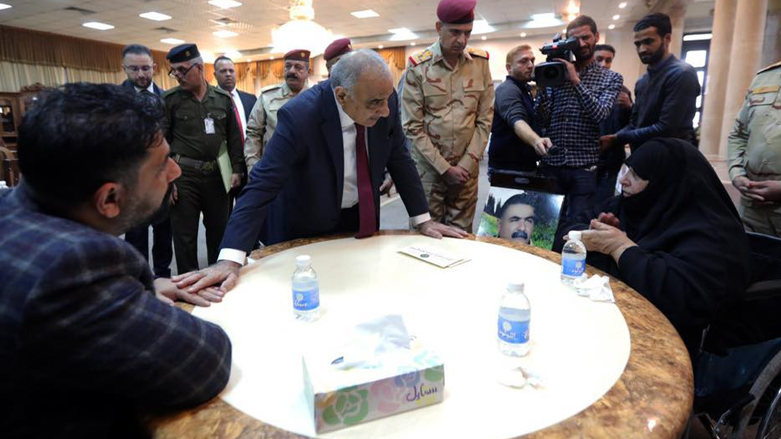Iraqi PM promises aid for return of IDPs, warns against corruption

ERBIL (Kurdistan 24) – Iraqi Prime Minister Adil Abdul-Mahdi on Monday said Baghdad would make every effort to ensure the return of displaced people to their homes.
Nearly five million Iraqis have been displaced since the Islamic State (IS) overran two-thirds of the country in mid-2014. Authorities say half of them have returned to their homes, but the other half remain displaced, with most residing in the Kurdistan Region.
Many Iraqis still do not know what is to become of them, especially since their homelands were a battleground for the over three-year-long conflict, during which thousands of homes were destroyed and much of the area’s infrastructure decayed.
Then Prime Minister Haidar al-Abadi announced the “final victory” over IS on Dec. 9 of last year. This “victory,” however, was military in nature as the group continues to operate an insurgency through sleeper cells and terrorizes, mostly, residents of remote areas.
Baghdad has said it seeks to repatriate the displaced peoples, but reports suggest many have been forcibly returned to their homes, potentially endangering their lives in the areas that might still be holding IS remnants.
“The return of the displaced and the reconstruction of their cities is a goal that we will do our utmost to achieve,” Abdul-Mahdi had said on the one-year anniversary of Iraq’s declaration, according to a Monday statement from the Defense Ministry.
Baghdad has previously said the reconstruction campaign of the cities under IS control, including but not limited to Mosul, Tikrit, Ramadi, and Falluja, requires 80 to 100 billion USD.
The PM added that the campaign would not be “limited to the liberated areas, but include the Iraqi provinces that sacrificed their sons in the liberation processes [and] where the opportunities for growth and reconstruction have been stalled during the past years and today suffers from a lack of services and employment opportunities.”
Abdul-Mahdi is mainly referring to the southern provinces, which have seen intermittent protests that turned bloody in a few instances over the past six months. The demonstrators were demanding, among other things, better public services and employment.
Iraqi authorities already face many challenges in rehabilitating the infrastructure across the country, restoring stability to the affected areas, and developing the service sector as the country continues to rank atop the candidates for the most corrupt countries in the world.
So far, many countries in the international community have donated funds that are intended for reconstruction efforts.
Analysts say, however, Iraq’s continued poor standing regarding corruption could prompt many countries to refrain from donating funds to help Baghdad rebuild.
According to Transparency International, Iraq is the 12th most corrupt country in the world.
Iraq continues to suffer from widespread corruption, with many government employees receiving salaries without actually being present or working—commonly known as “ghost” employees. The system has so far cost the country some $228 billion since 2003, according to the Iraqi Parliament.
“If we do not triumph over corruption then our victory will remain incomplete,” Abdul-Mahdi stated.
Editing by Karzan Sulaivany
